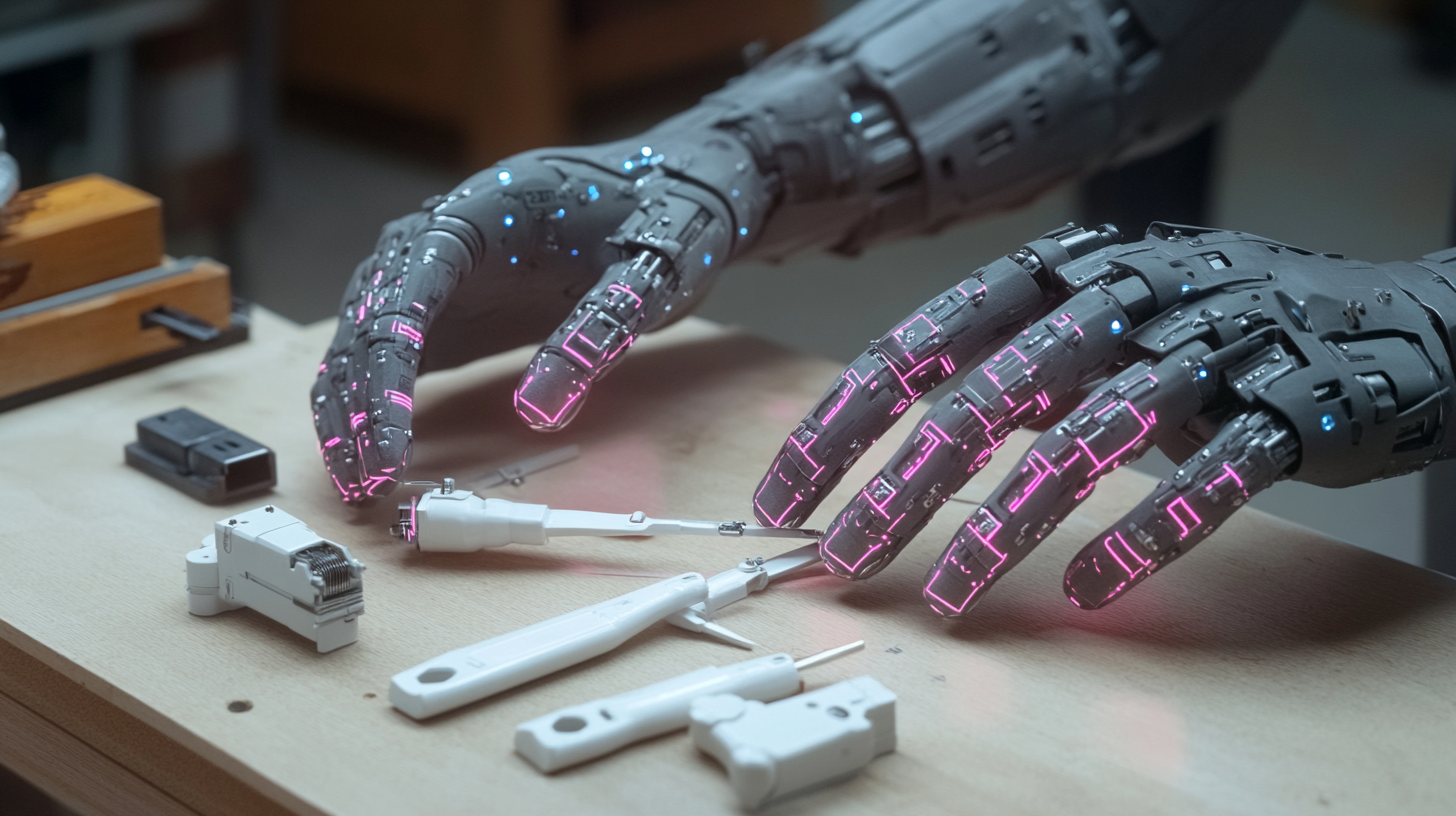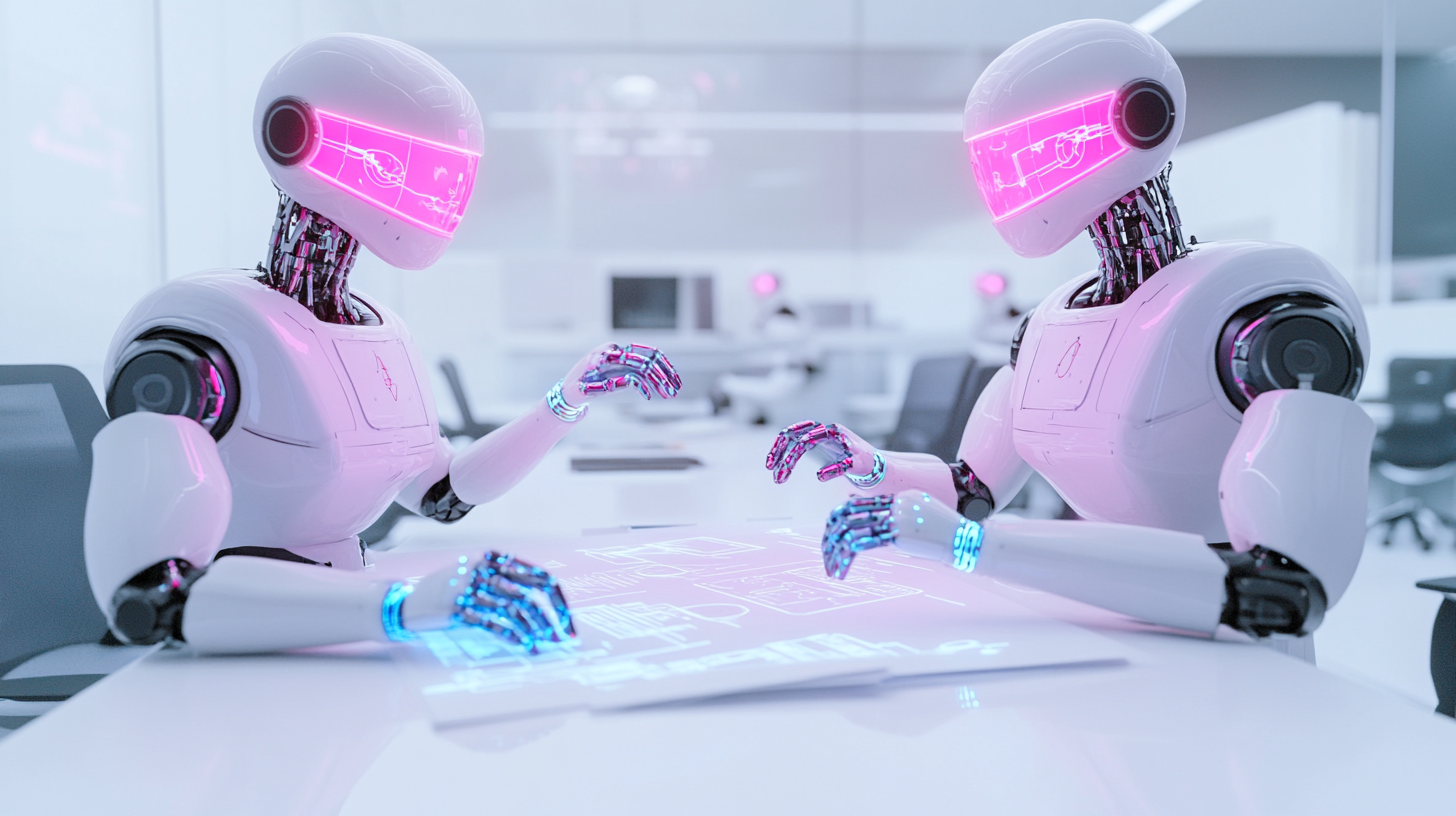Date of publication:
27 Dec. 24Labor market on the wave of automation and AI
“Welcome to the future! Just don’t look for the exit,” — that’s how it feels when reading expert forecasts about automation.
According to McKinsey, by 2030, machines will replace around 400 million jobs worldwide. And while this sounds like the plot of a sci-fi movie, we’re already living in it.
Automation doesn’t just change the rules of the game; it reshuffles the entire deck. Robots manage warehouse processes, algorithms write texts (even this paragraph could have been written by AI!), and chatbots have long answered customer queries better than some call center employees. But is the human factor really taking a back seat?
Let’s not fool ourselves: automation is not the enemy. It’s an opportunity. AI frees us from routine tasks but also challenges our career ambitions.
How do we find balance? How can we use new technologies so they work for us, not against us? In this article, we will not only answer this question but also show you how to survive in this new and exciting world.
Automation and AI: what it means for jobs
Automation. AI. Robots performing human tasks. You’ve probably heard these words hundreds of times. It feels like tomorrow we’ll wake up and machines will occupy our office chairs. But let’s be honest: this is not the “end of human labor,” but rather a new chapter in our history.
Let’s look at the facts. On one side of the coin, some professions, like cashiers or truck drivers, are at risk of disappearing. Robots are becoming so “smart” that they can outperform humans in tasks requiring only speed and precision. Some might say, “Well, this is the end of work.” But there’s another side. And it’s the one we often overlook.

Yes, automation can take away jobs, but it also creates new opportunities. Once, we couldn’t imagine that terms like “data scientist” or “robotics specialist” would become commonplace. Today, these are some of the most in-demand professions. People no longer need to be “human robots”; instead, we are moving toward work that requires creativity, analytics, and empathy.
Imagine this scenario: you work at a large logistics company. News surfaces about the implementation of autonomous trucks. Naturally, at first, it feels like a cloud over your career. But then your employer offers training courses on managing the new system or route data analytics — and you stay in the game. Perhaps, you even move to the next level.
Automation, like any new technology, has two sides: challenges and opportunities. The key is adaptation. If you’re ready to change and learn, you don’t need to fear these changes. On the contrary, you can harness them to your advantage. Yes, robots replace some jobs, but they don’t replace us as humans or our unique abilities. The main thing is the willingness to take control of the situation and steer these changes instead of becoming their victim.
Advantages and challenges of automation: how to stay ahead
Automation is like a machete in the jungle of business. It cuts through inefficiencies but can accidentally take someone down in the process. Let’s be honest: this process is like a high-stakes game. For businesses, it’s an opportunity to increase productivity; for workers, it’s a challenge that demands adaptation.
Advantages for businesses: rising higher
Implementing AI offers significant advantages to every business, including:
- Speed and Cost Efficiency. Imagine your team spends hours processing orders. Now imagine that task completed in minutes, thanks to AI. Example? Amazon uses robots for warehousing, reducing delivery times to a record 24 hours.
- Precision to the Last Pixel. You’ve probably noticed how robots on production lines create flawless products. They don’t get distracted by Instagram or dread Mondays.
- Analytics at Your Fingertips. Isn’t it amazing to know what your customers want before they even realize it? AI algorithms analyze user behavior and help businesses predict needs.

Challenges for workers: hold on tight
Automation brings with it certain “dark sides.”
- Job reductions. For example, in retail, self-checkout machines are replacing cashiers. What does this mean? It’s time to find a new niche.
- The need to learn quickly. Imagine this: you work as an accountant, but your employer implements software that automates all reporting. In the best-case scenario, you’ll be sent to data analytics courses; in the worst-case, you’ll end up on the job market.
Motivating cases:
- Starbucks and chatbots. The company introduced AI that automated customer service through mobile apps. However, it also created new job openings for developers and testers of this service.
- BMW and robotics. The company’s factories became some of the most automated in the world, yet BMW actively hires specialists to manage and improve these systems.
Conclusion: Live with Automation, Not Against It! The secret to success in an automated world is simple: quick adaptation and openness to change. Automation is a tool, not a threat. Use it to become stronger. As the saying goes: if you can’t beat them, lead them!

New professions of the AI era: find your place in the sun
Automation takes away jobs, you say? Allow me to disagree. It’s more like a diligent cleaner, clearing space for the new. But let’s not romanticize: some will need to change professions, while others may have to completely retrain. So how do you stay afloat in this whirlwind of change and become one of those who benefits from automation?
Here are the top 3 professions you should consider right now:
- AI Trainer. Yes, AI doesn’t learn by itself. It needs to be “fed” the right data, taught how to interact with clients, and corrected for “behavioral mistakes.” Love mentoring? Here’s your perfect opportunity.
- Business Process Automation Specialist. Every company has dozens of routine tasks that can be automated. Who handles this? People who know how to configure programs to work seamlessly.
- UX Designer for AI Algorithms. Who creates interfaces that are intuitive for both users and machines? People who can combine creativity with technological expertise.
What you need to become part of the new wave
The world is changing, and we need to change with it. Don’t wait for the “wave” to carry you. Learn. Try. Invest in yourself.
- Learn to think analytically. Not just about numbers, but about opportunities. As Sherlock Holmes once said, “Notice what others overlook.”
- Try your hand at programming. No one says you need to become a programmer, but basic knowledge of Python or SQL is like knowing English in the 21st century.
- Develop emotional intelligence. Robots can analyze, but they can’t empathize.
What to do right now?
- Sign up for courses or webinars related to AI and automation.
- Explore what skills are in demand in professions that interest you.
- Be open to change and experiment.
Automation doesn’t take jobs — it creates opportunities for those ready to take risks and learn new things. The choice is yours.

How to prepare for change? Practical tips
Automation is like a fast-flowing river: if you don’t know how to paddle, it’ll sweep you away. But mastering a few skills will make you the one confidently riding the current, not crashing against the rocks. Let’s talk about specific steps that will help you not just survive but thrive in the era of AI.
Education: your superpower in the new world
If you think learning means boring lectures that make your eyes glaze over, think again. Modern education is all about engaging webinars, interactive courses, and even games!
- Technical skills are a must-have. You don’t need to become a programmer, but understanding how algorithms work or having basic Python knowledge can unlock new opportunities. Courses on programming basics are now accessible even to schoolchildren — you can definitely manage it.
- Develop critical thinking. Remember how as a kid you used to ask, “But why?” and annoyed the adults? Today, this is a key skill. Analyze, question, and doubt.
- Focus on soft skills. Robots can’t negotiate or resolve conflicts. People with strong emotional intelligence will always be in demand.
Not sure where to start? Try this algorithm:
- Analyze your strengths. What are you best at? If it’s communication, consider team management roles. If it’s analytics, look into courses on data analysis.
- Research market needs. Check which professions are in demand in your field. For example, marketers should explore automation tools, while logistics professionals might focus on route optimization algorithms.
- Invest time in learning. One hour a day equals 365 hours a year. In that time, you can become an expert in a new field.
How to turn change into your advantage? Automation isn’t a storm; it’s a favorable wind. All you need to do is set your sails properly. And remember: change is an opportunity, not a threat.

Conclusion: how to stay competitive in the age of AI
Artificial intelligence and automation have changed the rules of the game, but that doesn’t mean you should “leave the match.” On the contrary, these changes open new opportunities for those who are ready to adapt and grow.
What to do right now?
- Create an Action Plan. Think about the changes happening in your field today and start preparing for them.
- Learn. The world of knowledge is more accessible than ever. Online courses, training sessions, webinars — all of these can help you stay in the loop.
- Stay Flexible. Don’t be afraid to experiment, explore new approaches, and rethink old methods.
Now a question for you:
What are you doing to stay competitive during times of change? AI isn’t taking our jobs. It’s creating a new reality where the key isn’t to compete with machines but to use them as tools for personal growth. And, as one well-known entrepreneur once said: “Your success is just a matter of your willingness to act.”



